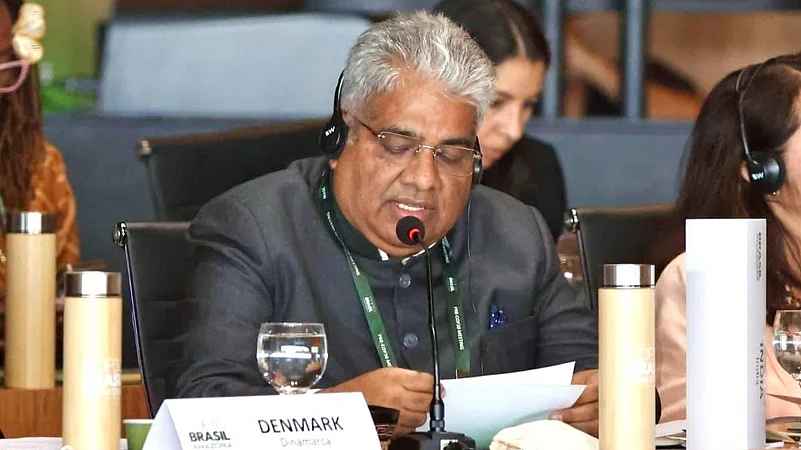
Environment minister Bhupender Yadav urges COP30 to prioritise adaptation and on-ground climate resilience efforts.
Calls for results-based funding linking finance to measurable adaptation outcomes.
Stresses multilateralism and equitable climate action through India’s cooperative initiatives.
Union Environment Minister Bhupender Yadav on October 13 said that COP30 should be the "COP of Adaptation" and urged that the climate summit should focus on transforming climate commitments into real-world actions that directly improve people's lives.
At the Pre-COP30 Ministerial Roundtable in Brasília, Yadav said the 30th UN climate summit in Belém, Brazil, in November must send a strong signal that multilateralism remains the cornerstone of global climate action.
"As we mark a decade since the adoption of the Paris Agreement, COP30 must send a resolute political message that multilateralism remains the cornerstone of global climate action," Yadav said.
In addition, he said the key to achieving tangible outcomes in Belém lies in translating global policy commitments into practical, locally grounded solutions. Calling for a stronger focus on resilience and local adaptation, Yadav stressed that "COP30 should be the COP of Adaptation".
He said all countries should agree on a minimum package of indicators under the UAE-Belem Work Programme.
"We should send an inspiring message to the world with the Baku Adaptation Road Map, that we are on the way to ensuring the safety and well-being of billions, leaving no one behind," he added.
Yadav also stressed the urgent need to strengthen and intensify the flow of public finance towards adaptation, which could encourage additional support from other sources.
He said the Paris Agreement mechanism is now fully functional and warned against introducing new processes after the Global Stocktake that could undermine its architecture. "Let us be informed by the first GST and do our utmost as per our national circumstances," he said.
Reiterating Prime Minister Narendra Modi's view that India seeks to be part of the solution, not the problem, Yadav highlighted India's global initiatives, such as the International Solar Alliance, the Coalition for Disaster Resilient Infrastructure and the International Big Cat Alliance, as examples of cooperative and action-oriented multilateralism.
"Let COP30 in Belém reaffirm faith in multilateralism, equity and collective resolve to deliver real, measurable action for people and the planet," Yadav concluded.
Adaptation Finance Still Lagging
According to a report published by the International Chamber of Commerce, despite this emphasis on closing the fund gap, private finance for adaptation is still lagging, with just 8% coming from business in 2022. While the right policies can close this gap, it is imperative that the COP30 doesnt only focus on demanding new commitments but it needs to formalise results-based adaptation funding, tying payments to resilience outcomes on the ground and ensuring accountability using predetermined metrics.
According to World Bank, about 95% of international public climate finance is provided upfront before a project is operational. Results-based climate finance (RBCF), on the other hand, is paid when results are achieved, and occasionally upon meeting interim milestones.
(With inputs from PTI.)




























